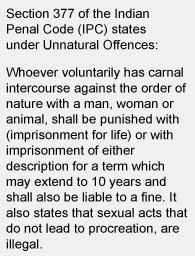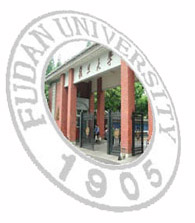Lesbian legislator comes out at Tokyo Pride
A Japanese politician came out as a lesbian at Tokyo's first Gay Pride event in three years during the weekend.

Kanako Otsuji, an Osaka Prefectural Assembly legislator, came out as a lesbian at Tokyo's first Gay Pride event in three years during the weekend.
Otsuji has been in the 112-seat Osaka Prefectural Assembly since 2003 which represents the country's second-largest city with a population of 9 million people. She is a member of the "Shuken (Sovereignty) Osaka" group of independent assembly members.
"I don't want children troubled by being homosexual experiencing the same (hardships)," she told the Kyodo news service.
"Homosexual people have often kept silent for fear of discrimination and prejudice. By declaring I'm homosexual, I would like to highlight the problems and put an end to a vicious circle of discrimination and prejudice," Otsuji said.
"I believe that coming out as a homosexual is the best thing I can do to encourage numerous people," Otsuji says in her book soon to be published.
About 3,000 people celebrated gay pride on Saturday with a march through Tokyo's Shibuya and Harajuku districts - the main shopping and entertainment areas of the city.
POST/READ COMMENTS
Gay activists protest gay sex law in Mumbai

The section regards homosexuality as an unnatural act which is punishable with a fine and/or a prison term of 10 years or even life imprisonment.
"A large number of countries have repealed this law. In fact it's a condition for entry into the European union. India being a democratic will repeal such an anti-constitutional law," says Anand Grover, a lawyer.
First introduced by the British in 1860 and then abolished in 1967 in Britain, India along with former British colonies Singapore and Malaysia have yet to repeal the section.
POST/READ COMMENTS
Syphilis epidemic hits Sydney's gay community
A new study has revealed that syphilis has become an epidemic among gay men in Sydney's inner city.
The results reported in the latest issue of the Medical Journal of Australia revealed a ten-fold increase in notifications mostly among HIV-positive men since 2000.
Associate Professor Andrew Grulich, co-author of the report, said that men living with HIV are known to conduct more sexually risky behaviour.
He added that syphilis is also contracted via oral sex, which many people regard as safe because it does not transmit HIV.
"The most alarming thing about this is that during the 1990s there was essentially no syphilis among homosexually active men in Australia," Professor Grulich said.
"We've seen a very rapid rise from roughly the year 2000 so that in Sydney we're now seeing more than 200 cases diagnosed a year."
He said that it is not realistic to expect people to abstain.
"I think we have to be realistic and one of the things we can do is to educate gay men to recognise the symptoms of syphilis as early as possible."
"Until recently there's been very low awareness of syphilis in the gay community and that clearly needs to change."
POST/READ COMMENTS
Chinese university offers undergraduate gay course
Previously only open to medical and graduate students, Shanghai's prestigious Fudan University will offer a course on homosexuality to undergraduates for the first time next term.

Gay activists have read the university's move and overwhelming response from students as positive signs that Chinese society is becoming more tolerant. Many Chinese still consider homosexuals as equivalent to HIV/AIDS patients.
Set to start in September, the course will examine the health, legal and social issues relating to homosexuality.
Instructor Gao Yanning was quoted as saying the course aims to break down widespread ignorance and prejudice against gays in China.
The new undergraduate course and original course has been sponsored by the Hong Kong-based Chi Heng Foundation, a charitable organisation which focuses on education about sexual orientation as well as support for people with AIDS.
Although homosexuality has been widely documented in classical and historical Chinese texts, gays are said to have become persecuted after China's 1949 communist revolution which condemned homosexuality as a product of corrupt western and feudal societies.
In 1997, China moved to decriminalise homosexuality and in 2001, the China Psychiatric Association struck homosexuality off from its list of mental disorders.
POST/READ COMMENTS
